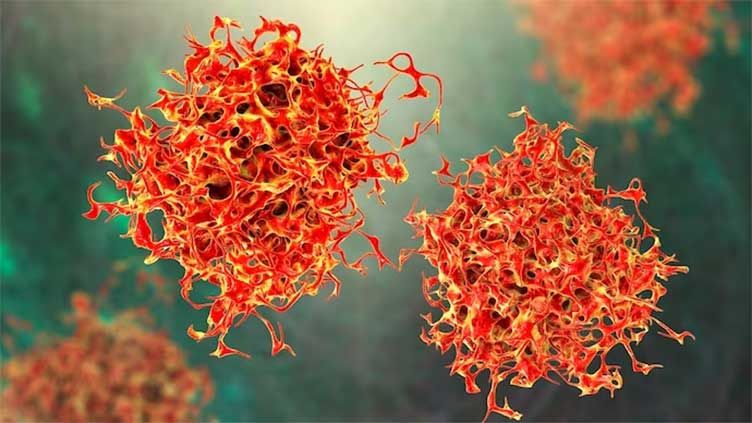Researchers reveal key to enhancing immunity against cancer

Cancer immunotherapy has been a beacon of hope for patients
(Web Desk) - Researchers at the Indian Institute of Science (IISc) delved into boosting immunotherapy in non-responsive cancer cells.
Researchers at the Indian Institute of Science (IISc) have made a groundbreaking discovery that could significantly improve the effectiveness of cancer immunotherapy, a treatment that harnesses the body's immune system to combat cancer cells.
The study, recently published in Frontiers in Immunology, delves into the intricate role of Interferon-gamma (IFN-γ), a cytokine critical for immune response, and its interaction with various cancer cells.
Cancer immunotherapy has been a beacon of hope for patients, offering a more targeted approach than traditional treatments like chemotherapy or radiation, which often harm healthy cells.
However, the cost and varying efficiency of these therapies have posed challenges.
The IISc team's research aimed to address these issues by investigating how different cancer cells respond to IFN-γ activation.
Avik Chattopadhyay, a PhD student at IISc's Department of Biochemistry and the first author of the study, explains, "IFN-γ is secreted by T cells or natural killer cells and can trigger apoptosis in tumor cells.
But if there's a deficiency in IFN-γ or its signaling pathway, the cancer cells may not respond effectively to immunotherapy."
Apoptosis, often referred to as programmed cell death, is a highly regulated and controlled process that occurs in multicellular organisms.
The researchers observed that upon treating cancer cells with IFN-γ, the cell growth medium turned yellow, indicating an acidic environment due to the release of lactic acid.
This observation led them to explore the metabolic processes behind this phenomenon.
They discovered that liver and kidney cancer cell lines ramped up their production of nitric oxide (NO) and lactic acid when activated by IFN-γ, resulting in toxic reactive oxygen species (ROS) that can lead to cell death.
Conversely, colon and skin cancer cell lines did not exhibit the same response, suggesting a potential resistance to immunotherapy.
To tackle this, the team experimented with various methods to induce lactic acid and NO production in these stubborn cells.
Remarkably, the addition of potassium lactate proved to be a game-changer, significantly reducing the growth of even the non-responsive cancer cells.
This finding was unexpected, as lactic acid is typically considered a metabolic waste product. "The study is really a proof-of-concept at this point," says Professor Dipankar Nandi, the corresponding author.
He emphasises the need for further research in animal models to determine whether targeting metabolic pathways can enhance the anti-tumor effects of IFN-γ during immunotherapy, particularly for cancers that are difficult to treat.


